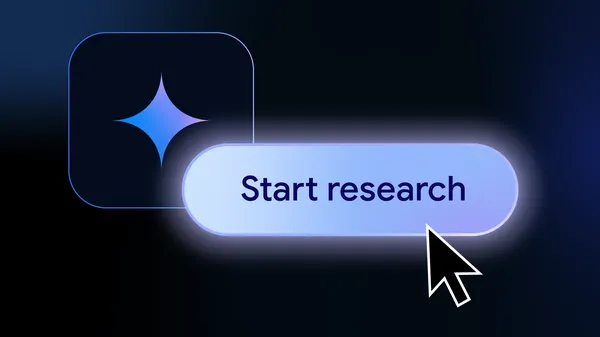Why Python Won’t Save You in a Layoff ?
I love Python. Who doesn’t? It’s clean, readable, powerful, and it’s the go-to language for data science, web development, automation, you name it. But if there’s one harsh truth I’ve learned over the years, it’s this: Python won’t save you from a layoff. No language will. The Harsh Reality of Language Loyalty If you’ve ever experienced a layoff or seen your friends go through it, you know how brutal it can be. And when companies are cutting entire teams, it doesn’t matter how good you are at writing beautiful Python scripts or building clean FastAPI backends. You could be the Django wizard of your team. The one automating workflows like a champ with your slick Pandas scripts. But when the ax falls, it’s not about what language you prefer. It’s about how replaceable you are. And no language, not even Python, makes you irreplaceable. Python’s Popularity Is a Double-Edged Sword Sure, Python is everywhere. It’s the most popular language for data science, and it powers countless backend systems. It’s easy to learn, so the talent pool is huge. But that’s also the problem. Python’s accessibility and popularity make it a commodity skill. If you think mastering Python is your golden ticket to job security, think again. It’s great to know it, but there are millions of other developers who know it too. And when companies are looking to downsize, it’s not about who knows Python. It’s about who knows how to adapt, communicate, and solve problems across domains. What Actually Matters When Layoffs Happen Here’s what I’ve noticed. The developers who survive layoffs aren’t necessarily the ones who are Python experts. They’re the ones who: Understand the bigger picture: They know how their code impacts business goals, not just technical metrics. Can work across stacks: When a company needs a backend dev to pick up some frontend work, or vice versa, the adaptable ones survive. Bring something unique to the table: Whether it’s leadership, mentorship, product insight, or just being the one who can fix that ancient legacy system nobody wants to touch. Don’t cling to a single language: They learn new tools fast. They’re not Python developers. They’re developers. Period. Python Is Amazing—But It’s Not Enough Don’t get me wrong. Python is still one of the best tools out there. It’s versatile, readable, and the ecosystem is incredible. But betting your entire career on one language? That’s just asking for trouble. Especially when the industry is shifting faster than ever. I've seen people get laid off despite being incredible Python developers. Some of them were doing everything right from a technical standpoint. But their expertise was too narrow, too locked into a single stack. And when the company decided to pivot or restructure, they were left behind. Stop Worshiping Languages—Start Building Skills That Matter I wish someone had told me earlier: Your programming language is just a tool. It’s not your safety net. It’s not your career. Instead of obsessing over mastering every Python framework out there, focus on skills that are harder to replace: System Design: Knowing how to build scalable, reliable systems matters more than which language you use. Cloud Architecture: Everything’s moving to the cloud. Understanding AWS, Azure, or GCP is more valuable than mastering Flask. Problem-Solving: Companies care about what you can build, not whether you used Python or Rust or Java to build it. Communication: If you can’t explain your solutions, good luck convincing anyone to keep you on board. Python Can Be Part of Your Toolkit—Just Not All of It I’m not saying ditch Python. It’s amazing for so many use cases. But if you’re placing all your bets on Python expertise alone, you’re setting yourself up for a rough time when layoffs hit. The tech industry isn’t loyal. Companies don’t care if you spent the last five years perfecting your Python craft. They care if you can adapt, learn, and contribute to their bottom line. If you’re a Python dev and loving it, that’s great. But if you want to be resilient, you’ve got to diversify your skill set. Go deeper into systems, learn the cloud, understand business requirements. Python won’t save you in a layoff. But a broader, adaptable skill set just might. Still write Python I still write Python almost every day. It’s a fantastic language. But I stopped viewing it as my safety net a long time ago. Now, it’s just one tool in a bigger toolbox. What about you? Have you felt the sting of layoffs and realized your language loyalty wasn’t enough? Or maybe you think Python is still the safest bet in the industry. Let’s talk in the comments.

I love Python. Who doesn’t? It’s clean, readable, powerful, and it’s the go-to language for data science, web development, automation, you name it. But if there’s one harsh truth I’ve learned over the years, it’s this: Python won’t save you from a layoff. No language will.
The Harsh Reality of Language Loyalty
If you’ve ever experienced a layoff or seen your friends go through it, you know how brutal it can be. And when companies are cutting entire teams, it doesn’t matter how good you are at writing beautiful Python scripts or building clean FastAPI backends.
You could be the Django wizard of your team. The one automating workflows like a champ with your slick Pandas scripts. But when the ax falls, it’s not about what language you prefer. It’s about how replaceable you are. And no language, not even Python, makes you irreplaceable.
Python’s Popularity Is a Double-Edged Sword
Sure, Python is everywhere. It’s the most popular language for data science, and it powers countless backend systems. It’s easy to learn, so the talent pool is huge.
But that’s also the problem. Python’s accessibility and popularity make it a commodity skill. If you think mastering Python is your golden ticket to job security, think again. It’s great to know it, but there are millions of other developers who know it too.
And when companies are looking to downsize, it’s not about who knows Python. It’s about who knows how to adapt, communicate, and solve problems across domains.
What Actually Matters When Layoffs Happen
Here’s what I’ve noticed. The developers who survive layoffs aren’t necessarily the ones who are Python experts. They’re the ones who:
- Understand the bigger picture: They know how their code impacts business goals, not just technical metrics.
- Can work across stacks: When a company needs a backend dev to pick up some frontend work, or vice versa, the adaptable ones survive.
- Bring something unique to the table: Whether it’s leadership, mentorship, product insight, or just being the one who can fix that ancient legacy system nobody wants to touch.
- Don’t cling to a single language: They learn new tools fast. They’re not Python developers. They’re developers. Period.
Python Is Amazing—But It’s Not Enough
Don’t get me wrong. Python is still one of the best tools out there. It’s versatile, readable, and the ecosystem is incredible.
But betting your entire career on one language? That’s just asking for trouble. Especially when the industry is shifting faster than ever.
I've seen people get laid off despite being incredible Python developers. Some of them were doing everything right from a technical standpoint. But their expertise was too narrow, too locked into a single stack. And when the company decided to pivot or restructure, they were left behind.
Stop Worshiping Languages—Start Building Skills That Matter
I wish someone had told me earlier: Your programming language is just a tool. It’s not your safety net. It’s not your career.
Instead of obsessing over mastering every Python framework out there, focus on skills that are harder to replace:
- System Design: Knowing how to build scalable, reliable systems matters more than which language you use.
- Cloud Architecture: Everything’s moving to the cloud. Understanding AWS, Azure, or GCP is more valuable than mastering Flask.
- Problem-Solving: Companies care about what you can build, not whether you used Python or Rust or Java to build it.
- Communication: If you can’t explain your solutions, good luck convincing anyone to keep you on board.
Python Can Be Part of Your Toolkit—Just Not All of It
I’m not saying ditch Python. It’s amazing for so many use cases. But if you’re placing all your bets on Python expertise alone, you’re setting yourself up for a rough time when layoffs hit.
The tech industry isn’t loyal. Companies don’t care if you spent the last five years perfecting your Python craft. They care if you can adapt, learn, and contribute to their bottom line.
If you’re a Python dev and loving it, that’s great. But if you want to be resilient, you’ve got to diversify your skill set. Go deeper into systems, learn the cloud, understand business requirements.
Python won’t save you in a layoff. But a broader, adaptable skill set just might.
Still write Python
I still write Python almost every day. It’s a fantastic language. But I stopped viewing it as my safety net a long time ago. Now, it’s just one tool in a bigger toolbox.
What about you? Have you felt the sting of layoffs and realized your language loyalty wasn’t enough? Or maybe you think Python is still the safest bet in the industry. Let’s talk in the comments.












































































